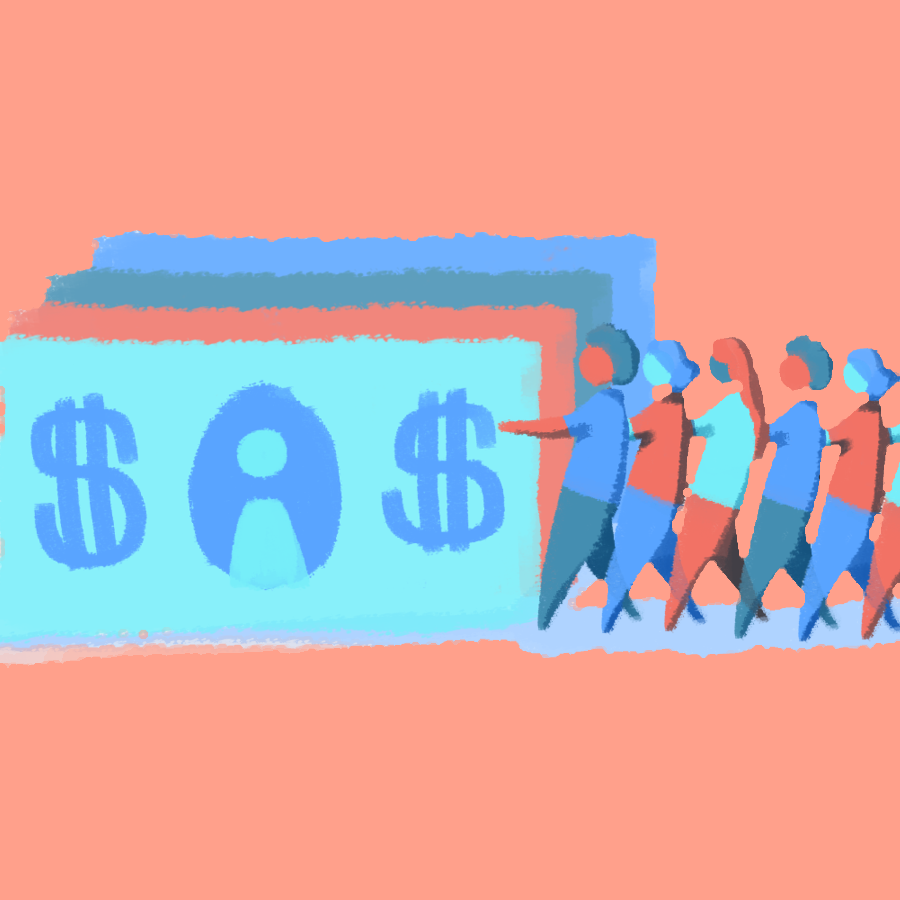Minimum Wage
Once a week, Joyce Barnes leaves the grocery at night, brown paper bag in hand filled shallowly with all that her $25 food budget can buy her. Barnes is 62, works two jobs, over twelve hours a day, and yet, her low wages leave her unable to adequately support herself. The struggles of Barnes, a nurse, and Ieisha Franceis, a fast-food worker, were detailed in a recent NPR article, exposing the underbelly of our wage crisis. The stories of Barnes and Francis were noticeably absent from the mouths of politicians voting against an increase to the minimum wage last month. Instead, 50 republicans, an independent, and 7 Democrats shot down such efforts, most citing improper placement of the bill in the COVID relief as reasoning. The amendment, offered by Senator Bernie Sanders, would have ensured that the federal minimum wage increase to $15 an hour by 2025.
As for the intricacies and excuses mentioned by the no voters, citing the pandemic seemed particularly insulting. For many, including my own family, the pandemic has changed the definition of “essential.” Before, grocery store workers, low-level nurses, and fast food workers sat at the bottom of the totem pole, excluded from our predetermined social order. Then, the world gave us the chance to reconsider. When the pandemic struck and everything stopped, society came to a halt, and all that left running were the underpaid workers keeping the rest of us alive. Workers like Barnes risked their lives to ensure the safety of our country, yet were repaid with wages barely adequate to keep their own heads above water. As reported by the Economic Policy Institute (EPI), over sixty percent of those helped by such an amendment would be essential workers, a needed boost to a suffering community.
A vote against the $15 minimum wage also ensures the continuation of systematic oppression of workers of color. The pay gap inflicted from centuries of racism still exists, and is only heightened by a failure to deliver a higher minimum wage. The EPI points out that black and latino workers make 10-15% less than their white counterparts completing similar tasks. An increase to the minimum wage would impact almost one-third of African American workers, leading to an estimated average increase of $3,500 to annual income. As the numbers support, an increase to the minimum wage would have positive and direct implications to communities of color. I believe that this along with other steps, is vital to moving past merely talking about being an antiracist society, and actually emulating one.
The biggest worry is the negative impact Senator Sanders’ amendment may have on small businesses. With the heightened economic stressors weighting upon smaller businesses, this concern is real, as such organizations may not be able to handle an increase in their salary budget. Without a proper Covid-19 bailout from the government, small businesses would struggle in the following months. But, with the help of a short term bailout, a minimum wage increase would help lower turnover, increase productivity through an added incentive, diminish retraining costs due to lower turnover rates, and ensure the customer service that sets such businesses apart. Above all else, an increase in minimum wage would put money in the pockets of low-wage workers, who will in turn pump the economy through other purchases. In concert with a COVID relief bill, a rise in the minimum wage would only be more successful..
Sure, we understand that the increased federal minimum wage would boost a struggling economy with increased consumer spending, lower government spending on public assistance programs would fall by over 15 billion dollars (EPI), and free funds for bailouts which could help smooth the economic healing process. But to understand why the minimum wage really matters, I come back to Joyce Barnes, a 62 year old black woman working sixty hours a week as an essential worker who still struggles to live a sustainable lifestyle. These are the people we are failing, and they are why we need change.







